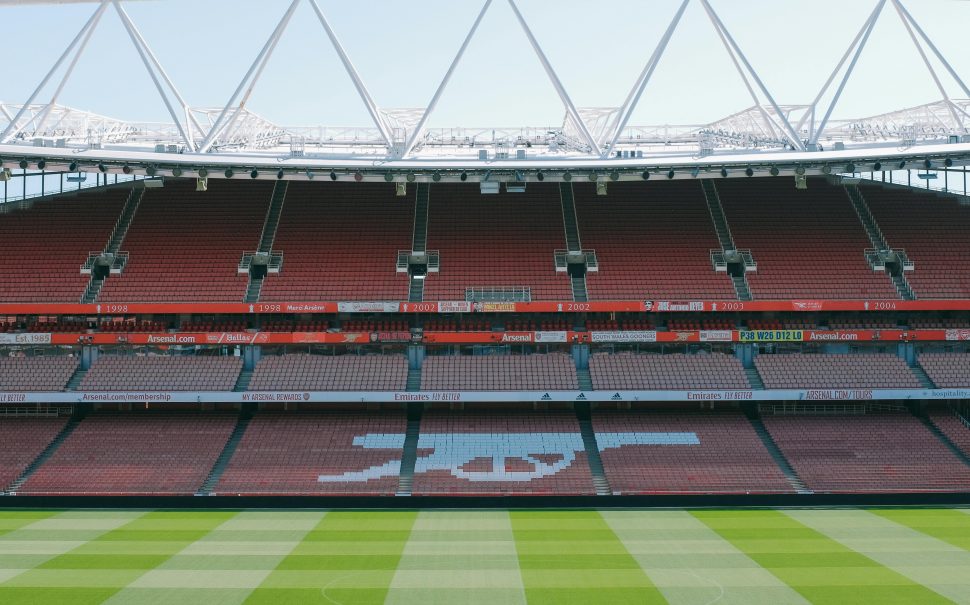London is home to some of the wealthiest soccer clubs in the world.
These clubs not only dominate the Premier League but also command significant financial clout. Their financial strength is derived from a diverse range of revenue streams, including broadcasting rights, sponsorship deals, and ticket sales.
The 2022-2023 season saw the top five Premier League clubs, many of which are based in London, collectively earning over £4.8 billion from broadcasting rights alone.
This massive influx of cash underscores the economic power these clubs wield.
The role of betting sponsorships has become increasingly prominent in recent years.
Companies like Bet365 and Ladbrokes have invested heavily in the sport, providing crucial financial support to these clubs.
Fans often engage with these sponsors, exploring exclusive no deposit bonuses at casinos.com to unwind and participate in the excitement of the game.
This multifaceted approach to revenue generation ensures that London’s top soccer clubs remain financially stable and competitive.
But what does this financial might mean for the future of these clubs?
Can they sustain their success amidst the ever-changing dynamics of the Premier League?
Revenue generation: the lifeblood of London clubs
Broadcasting rights form the cornerstone of revenue for London’s soccer clubs.
The 2022-2023 season saw the top five Premier League teams earning over £4.8 billion from broadcasting rights.
This revenue stream is crucial for the clubs, allowing them to invest in top-tier talent and maintain their competitive edge.
Sponsorship deals also play a significant role.
Betting sponsorships, in particular, have become a substantial contributor to the financial health of these clubs.
Companies like Bet365 and Ladbrokes provide not only direct financial support but also create opportunities for fan engagement through various offers, including exclusive no deposit bonuses at casinos.com.
Ticket sales are another vital revenue stream.
For instance, tickets to Spurs matches can cost upwards of £60 ($80), with many fans needing to pay membership fees to secure tickets.
These sales contribute significantly to the clubs’ overall revenue, ensuring that they can continue to invest in their infrastructure and talent.
The combination of these revenue streams creates a robust financial foundation for London’s top soccer clubs.
This diversified approach to revenue generation is essential for their long-term success and stability.
Ownership and wealth: the billionaires behind the clubs
The financial strength of London’s top soccer clubs is also bolstered by their billionaire owners.
Chelsea FC, for example, is owned by Todd Boehly, a billionaire with an estimated net worth of over $10 billion.
Arsenal FC is owned by Stan Kroenke, another billionaire with a similar net worth.
Tottenham Hotspur FC is owned by Joe Lewis, whose net worth is estimated at over $6 billion.
West Ham United FC is owned by David Sullivan and David Gold, both British billionaires with significant investments in the club.
These owners provide not only financial backing but also strategic direction, ensuring that the clubs remain competitive in the Premier League.
Their wealth allows the clubs to invest in top talent, state-of-the-art facilities, and advanced training programs.
This investment is crucial for maintaining the clubs’ competitive edge and ensuring their long-term success.
The financial backing of these billionaire owners also provides a safety net for the clubs.
In times of economic uncertainty or poor on-field performance, the owners can provide the necessary financial support to weather the storm.
This support is essential for maintaining the clubs’ financial stability and ensuring their continued success.
The role of sponsorships and betting in club finances
Sponsorships are a crucial component of the financial ecosystem of London’s top soccer clubs. Betting sponsorships, in particular, have become increasingly important.
Companies like Bet365 and Ladbrokes invest heavily in the sport, providing essential financial support to the clubs.
These sponsorships not only contribute to the clubs’ revenue but also create opportunities for fan engagement.
Fans often engage with these sponsors through various offers, including exclusive no deposit bonuses at platforms like casinos.com.
This engagement provides an additional revenue stream for the clubs, ensuring their financial stability.
The rise of betting sponsorships reflects the changing dynamics of the sports industry, where traditional revenue streams are supplemented by newer, innovative sources.
However, it’s important to approach this topic neutrally.
While betting sponsorships provide significant financial support, they also come with their own set of challenges and ethical considerations.
It’s crucial for clubs to balance the financial benefits of these sponsorships with the potential risks and ensure that they are promoting responsible gambling practices.





Join the discussion